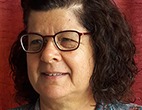Citation:
תקציר:
Gender gaps in physics in favour of boys are more prominent in Israel than in other countries. The main research question is to find out what gender issues are at play in Israeli advanced placement physics classes. Matriculation exam scores from approximately 400 high schools were analysed across 12 years. In addition, semi-constructed interviews were conducted with 50 advanced placement physics students (25 girls and 25 boys). In terms of participation, it was found that the ratio of girls to boys has been unchanged from 1988 to 2000 and is roughly 1:3. In terms of performance, it was found that the final matriculation scores of boys and girls are similar. However, breaking up the final scores into its two components - teachers’ given grades and matriculation test scores - showed that boy’s test scores are usually higher than girls’ test scores, while girls’ teachers’ given grades are usually higher than boys’. Results from semi-constructed interviews pointed to two factors that are especially unfavourable to many girls: excessive competitiveness and lack of teaching for understanding. Girls’ yearning for deep understanding is seen as a form of questing for connected knowledge. It is suggested that instructional methods that foster students’ understanding while decreasing competitiveness in physics classes might contribute to girls’ participation and performance in advanced physics classes while also supporting the learning of many boys.

